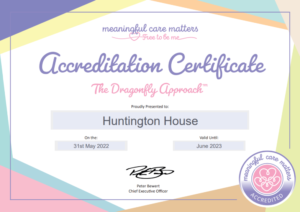The importance of short term Respite Care
The demand for Respite Care during the summer months is unsurprisingly high, with many families heading off on holidays whilst their children are on the summer break from school and others planning action packed days, during the warm weather.
For those who have a caregiving role in the family, the need to balance the support they give with their wider family can be challenging at this time of year. Whilst caregiving is very rewarding, it is demanding both physically and mentally and being able to take time away, can be hugely beneficial to health and wellbeing.
What is the purpose of Respite Care?
Taking a break from caring for someone else is the main reason people consider respite care, giving carers time for themselves. This can be based on day care, care in the home or a short stay at a residential care home of 1 to 4 weeks.

When is it time to consider Respite Care?
There are many reason caregivers make the decision to organise Respite Care for a person they support and our recommendation where possible is to plan this ahead of time during busy periods like the Summer Holidays.
- Simply take time out to reboot and recharge physically and mentally
- To enable them to spend more time with children or the family during school holidays
- When the list of general household to do’s aren’t getting done and they need to catch up on themselves.
- During renovation work to the home, which is likely to be disruptive
- The need to attend medical appointments or treatment themselves
- They simply just need a break
What are the benefits of short term residential respite care?
Whilst there are a number of options available for a respite break, such as asking friends or family to help out, employing a live-in carer or sourcing home care from a paid carer, there are added benefits from opting for short term residential care.
A short term stay in a luxury all inclusive residential home like Huntington House, can be a holiday in itself for people who need extra help in their day to day lives or live alone with change of scenery and the peace of mind being in a welcoming, safe and secure environment.
These short stays can also be a great opportunity to trial the services and environment of a Residential home, if a full time move is being considered. The socialness of joining in activities and chatting to the other residents and staff is often the thing people enjoy the most from their stay.
Respite Care for people living with Dementia can also be beneficial when it is in a specialist dementia care home like Langham Court. With the reassurance the person living with dementia’s needs will be taken care of, gives carers peace of mind to have a break whilst the stimulation of taking part in activities created with individual abilities and needs in mind can be a positive experience for those living with dementia

Who pays for respite care?
Where respite care can’t be fully funded within the family, there is funding available for respite care and local councils will complete an assessment of both your individual living and financial circumstances. This will be completed as a carer’s assessment and a needs assessment for the person who needs the care.
The Huntington & Langham approach to respite care
Whether recovering from an operation, injury or medical condition, or if you’re a carer and need somewhere safe for your loved one to stay while you take some time for yourself, our respite care is second to none and comes part and parcel with complete peace of mind.
We create a personalised care plan before any stay so that you and your loved ones can relax, knowing we’re providing specialist support in a comfortable home from home. We often find people settle into the home very quickly and extend their stay.
“I don’t think you could find many Huntington’s. It’s extremely well run. Different people get different things. I love it! I came for two weeks and have stayed for months. It’s the attitude you just couldn’t fault. They have been very understanding to me as a smoker as so many places don’t these days. AND they’ve let me have my dog Woolly – they had a vote on it and then Maggie said “Woolly is welcome!” Respite Resident at Huntington House
You’ll be welcomed into the family and are encouraged to make the most of all that we have to offer here, such as an exciting activities programme, freshly-cooked meals and beautiful gardens, along with high quality care from our fantastic team.
Huntington House is a leading accredited Level One Dragonfly Residential Home. In our recent audit we received an Excellent rating from the team at Meaningful Care Matters, who described our care as:
“A highly engaged service with a high value on meaningful moments and a true person-centred philosophy, which is congruent in look, sound and feel as well as with regulatory compliance requirements. People’s individuality and expression is evident, and people can express that freedom and be themselves.

Our Home Maker team have a great mix of different skills and interests which helps offer variety in the day; with some residents enjoying the more structured activities such as quizzes whilst others value time with the team who are great at offering more 1-to-1 time and conversations.
How can I organise Respite Care?
If you, as a caregiver, need some time out, or you feel your loved one might benefit from a change of scenery, our respite and daycare services could be ideal for you.
We encourage anyone thinking of Respite care to come and visit us to take a tour of the homes and Estate, simply give us a call on 01428 604600 or Email us at huntington@hlestate.co.uk
